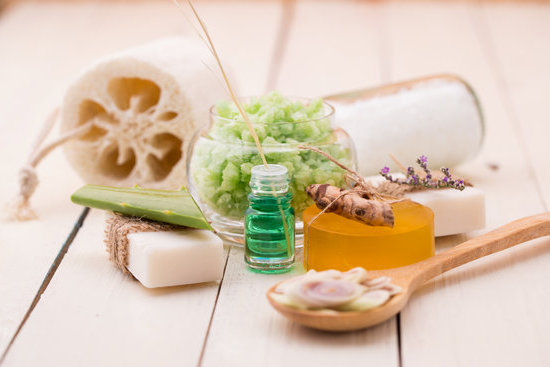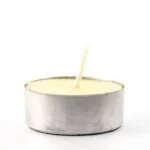Aromatherapy has garnered attention for its potential to improve sleep quality and reduce anxiety levels in patients. This holistic healing practice involves the use of essential oils derived from plants to promote overall well-being. The soothing scents of these essential oils have been found to have a calming effect on the mind and body, making them a popular choice for those seeking natural ways to address sleep issues and anxiety.
The relationship between aromatherapy and sleep quality is rooted in the ability of certain essential oils to induce relaxation, reduce stress, and create an optimal environment for restful slumber. Through inhalation or topical application, these aromatic compounds can impact the limbic system – the part of the brain responsible for emotions and memories – thereby promoting a sense of tranquility that can enhance sleep onset and quality.
Similarly, aromatherapy has shown promise in alleviating anxiety symptoms by activating certain neurotransmitters in the brain that regulate mood and stress levels. By inhaling specific essential oils like lavender, chamomile, or bergamot, patients may experience a decrease in anxious feelings and an overall sense of calmness. Research studies have delved into the mechanisms behind these effects, shedding light on how aromatherapy can be a valuable tool in managing anxiety disorders.
Understanding the Relationship Between Aromatherapy and Sleep Quality
Aromatherapy has been used for centuries as a holistic approach to promoting relaxation and overall well-being. When it comes to sleep quality, aromatherapy can play a significant role in improving the duration and depth of sleep, as well as reducing symptoms of insomnia. The effects of aromatherapy on sleep quality and anxiety of patients have been recognized by many healthcare professionals and researchers.
- One key way in which aromatherapy enhances sleep quality is through its ability to calm the mind and body. Essential oils like lavender, chamomile, and cedarwood have soothing properties that help promote relaxation, reduce stress levels, and prepare the body for restful sleep.
- Aromatherapy works by stimulating the limbic system in the brain, which is responsible for controlling emotions, memories, and behaviors. When certain essential oils are inhaled or applied topically, they can trigger positive responses in the brain that promote feelings of calmness and relaxation.
- Research has shown that the aroma molecules from essential oils can affect neurotransmitters in the brain, such as serotonin and dopamine, which play a crucial role in regulating mood and sleep patterns. By influencing these neurotransmitters, aromatherapy can help improve sleep quality and reduce symptoms of anxiety.
Incorporating aromatherapy into your nightly routine can have a profound impact on your overall sleep quality. Whether you choose to diffuse essential oils in your bedroom, apply them topically before bedtime, or add them to a warm bath, the calming effects of aromatherapy can create an environment conducive to better rest. By understanding how aromatherapy works to alleviate anxiety and promote better sleep quality, individuals can take proactive steps towards improving their overall well-being.
How Aromatherapy Works to Alleviate Anxiety in Patients
Aromatherapy has been recognized for its calming and stress-relieving effects, making it a popular alternative form of treatment for anxiety. The use of essential oils in aromatherapy can help create a sense of relaxation and ease, promoting a more peaceful state of mind. The practice involves the inhalation or application of plant-based essential oils through various methods such as diffusers, topical application, or massage.
The effects of aromatherapy on anxiety are believed to be linked to the olfactory system, which is connected to the limbic system in the brain responsible for emotions and memory. When inhaling essential oils, scent molecules travel through the nose and stimulate the olfactory nerves, sending signals to the brain that can trigger emotional responses.
Certain essential oils like lavender, bergamot, and rose are known for their calming properties and have been shown in studies to help reduce anxiety levels in individuals.
Research studies have demonstrated the positive impact of aromatherapy on anxiety levels in patients. For instance, a study published in the Journal of Evolutionary Psychology found that inhalation of lavender essential oil reduced anxiety levels and improved mood in participants.
Another study from the International Journal of Nursing Practice reported that the use of aromatherapy massage with citrus essential oils helped reduce anxiety in cancer patients undergoing treatment. These findings suggest that incorporating aromatherapy into patient care can be beneficial in alleviating anxiety symptoms and improving overall well-being.
Research Studies on the Effects of Aromatherapy on Sleep and Anxiety
Aromatherapy has gained recognition for its potential to improve sleep quality and reduce anxiety levels in patients. Research studies have been conducted to investigate the effects of aromatherapy on sleep and anxiety, providing valuable insights into its efficacy as a complementary therapy.
Impact on Sleep Quality
Studies have shown that certain essential oils used in aromatherapy, such as lavender and chamomile, can help promote relaxation and improve sleep quality. Aromatherapy works by stimulating the olfactory system, which is linked to the limbic system in the brain responsible for emotions and memory. This interaction can create a calming effect that aids in falling asleep faster and experiencing deeper restorative sleep cycles.
Alleviating Anxiety Symptoms
Aromatherapy has also been found to be effective in alleviating symptoms of anxiety in patients. Essential oils like bergamot and rosemary have been shown to have anxiolytic properties, helping to reduce feelings of stress and anxiety. The soothing scents of these essential oils can trigger a relaxation response in the body, leading to a decrease in feelings of tension and worry.
Clinical Evidence and Recommendations
Clinical trials examining the effects of aromatherapy on sleep quality and anxiety have provided encouraging results. Patients who received aromatherapy treatments reported improvements in their overall sleep patterns and a reduction in anxiety levels compared to those who did not receive aromatherapy. Based on these findings, healthcare providers may consider incorporating aromatherapy as part of a holistic approach to managing sleep disorders and anxiety-related conditions.
Overall, research studies support the positive effects of aromatherapy on both sleep quality and anxiety levels in patients. By harnessing the therapeutic benefits of essential oils through aromatherapy techniques, individuals may find relief from sleep disturbances and stress-related symptoms, ultimately improving their overall well-being.
Popular Essential Oils Used in Aromatherapy for Improving Sleep
Aromatherapy, a holistic approach to health and wellness, has gained popularity for its potential benefits in improving sleep quality and reducing anxiety levels in patients. Essential oils play a significant role in aromatherapy, as they contain therapeutic properties that can positively impact both physical and emotional well-being. When it comes to enhancing sleep, certain essential oils have been found to be particularly effective in promoting relaxation and creating a conducive environment for rest.
Here are some popular essential oils used in aromatherapy for improving sleep:
- Lavender: Known for its calming and soothing properties, lavender essential oil is often used to promote restful sleep and reduce feelings of stress or anxiety.
- Chamomile: Chamomile essential oil is renowned for its ability to relax the mind and body, making it an excellent choice for individuals struggling with insomnia or restless sleep.
- Sandalwood: With its warm and woody aroma, sandalwood essential oil can help induce a sense of tranquility and relaxation, ideal for those seeking a peaceful night’s sleep.
Research studies have shown that the inhalation or topical application of these essential oils can have a profound impact on sleep quality and stress levels. The soothing scents of these oils have been found to calm the nervous system, lower heart rate, and promote feelings of relaxation before bedtime.
By incorporating these essential oils into your nightly routine through methods such as diffusing with an oil diffuser or adding a few drops to a warm bath, you may experience improvements in your overall sleep patterns and emotional well-being.
Overall, the use of essential oils in aromatherapy offers a natural and gentle approach to improving sleep quality and managing anxiety. While individual preferences may vary when it comes to selecting specific oils, experimenting with different blends or single oils can help you find what works best for your unique needs.
Whether you are looking to unwind after a long day or support better sleep hygiene, incorporating aromatherapy into your daily routine may prove beneficial in achieving optimal rest and relaxation.
Tips for Incorporating Aromatherapy Into Your Nightly Routine for Better Sleep
Aromatherapy has been increasingly recognized for its potential to improve sleep quality and alleviate anxiety in patients. Incorporating aromatherapy into your nightly routine can be a simple yet effective way to reap the benefits of this practice. By using certain essential oils and creating a relaxing environment, you can create a soothing atmosphere that promotes better sleep and reduces anxiety levels.
Choosing the Right Essential Oils
When incorporating aromatherapy into your nightly routine, it is important to choose the right essential oils that are known for their calming and sleep-inducing properties. Lavender oil, for example, is one of the most popular choices for promoting relaxation and improving sleep quality.
Other essential oils such as chamomile, bergamot, and cedarwood are also known for their calming effects on the mind and body. Experimenting with different essential oils to find what works best for you is key to maximizing the benefits of aromatherapy.
Creating a Relaxing Environment
Incorporating aromatherapy into your nightly routine goes beyond just using essential oils. Creating a relaxing environment in your bedroom can further enhance the effects of aromatherapy on your sleep quality and anxiety levels.
Consider using a diffuser to disperse the scent of the essential oils throughout the room or adding a few drops of oil to a warm bath before bedtime. Dimming the lights, playing soft music, and practicing relaxation techniques such as deep breathing can also contribute to a more peaceful night’s rest.
Establishing a Consistent Routine
To fully experience the benefits of aromatherapy on sleep quality and anxiety levels, it is important to establish a consistent nightly routine. Incorporate aromatherapy into your bedtime ritual by diffusing essential oils, applying them topically, or using them in a warm compress. By making aromatherapy a regular part of your evening routine, you may find that it helps calm your mind, relax your body, and improve overall sleep patterns over time.
Success Stories of Patients Who Have Experienced Positive Results From Aromatherapy
Aromatherapy has been increasingly recognized for its positive effects on improving sleep quality and reducing anxiety levels in patients. Many individuals have reported significant improvements in their overall well-being after incorporating aromatherapy into their daily routines. The soothing scents of essential oils can have a calming effect on the mind and body, promoting relaxation and better sleep.
In a recent study conducted by researchers, it was found that patients who used aromatherapy before bedtime experienced a significant improvement in their sleep quality compared to those who did not use any aromatherapy. The participants reported falling asleep faster, staying asleep longer, and waking up feeling more refreshed and rejuvenated. Additionally, the study also noted a decrease in anxiety levels among the participants who used aromatherapy regularly.
One particular success story worth mentioning is that of Sarah, a patient who struggled with insomnia and anxiety for years. After exploring different treatment options with limited success, Sarah decided to try aromatherapy as a natural alternative.
She began using lavender essential oil in a diffuser at night and found that the calming scent helped her relax and unwind before bedtime. Over time, Sarah noticed a significant improvement in both her sleep quality and anxiety levels, leading to a better overall quality of life.
Precautions and Considerations When Using Aromatherapy for Sleep and Anxiety Management
Aromatherapy is a complementary therapy that involves the use of essential oils extracted from plants to promote relaxation, relieve stress, and improve overall well-being. While aromatherapy has shown promising results in enhancing sleep quality and reducing anxiety levels in patients, it is essential to consider some precautions before incorporating it into your routine.
One important precaution to keep in mind when using aromatherapy for sleep and anxiety management is the quality of essential oils being used. It is crucial to choose high-quality, pure essential oils from reputable sources to ensure their safety and effectiveness. Diluting essential oils with a carrier oil before applying them to the skin is also recommended to prevent skin irritation or sensitization.
Furthermore, it is advisable to perform a patch test before using any new essential oil to check for any allergic reactions or sensitivities. Some individuals may have specific allergies or sensitivities to certain essential oils, so it is vital to identify and avoid those particular oils. Pregnant women, children, and individuals with certain medical conditions should consult with a healthcare provider before using aromatherapy to ensure its safety and appropriateness for their individual needs.
| Benefits of Aromatherapy | Precautions for Aromatherapy |
|---|---|
| Promotes relaxation | Use high-quality essential oils |
| Relieves stress | Dilute essential oils with carrier oil |
| Improves overall well-being | Perform patch test before use |
Conclusion
In conclusion, the research and success stories discussed in this article highlight the significant potential of aromatherapy in improving sleep quality and reducing anxiety levels in patients. The effects of aromatherapy on sleep quality and anxiety are promising, with many individuals experiencing positive results from incorporating essential oils into their nightly routines.
As more studies continue to explore the benefits of aromatherapy, it is evident that this natural approach to managing sleep and anxiety will play a crucial role in future healthcare practices.
Moving forward, the future of aromatherapy looks bright as it gains more recognition for its ability to promote relaxation, improve quality of sleep, and alleviate anxiety symptoms. With an increasing number of individuals seeking alternative and complementary therapies for sleep and anxiety management, aromatherapy offers a safe and effective option worth considering.
As healthcare providers and researchers continue to delve deeper into the mechanisms behind the effects of aromatherapy on sleep quality and anxiety levels, we can expect to see more tailored approaches that cater to individual needs.
Frequently Asked Questions
What Are the Effects of Aromatherapy on the Patient Outcomes of Anxiety and Sleep Quality in Coronary Care Unit Patients?
Aromatherapy has shown promising effects on anxiety and sleep quality in coronary care unit patients. Studies indicate that the use of essential oils like lavender or chamomile can help reduce anxiety levels and improve sleep quality, leading to better patient outcomes.
Does Aromatherapy Affect Sleep Quality?
Aromatherapy has been found to have a positive impact on sleep quality. Certain essential oils have sedative properties that can promote relaxation and improve the overall sleep experience. Inhalation or massage with these oils before bedtime can enhance the quality of sleep.
What Are the Effects of Aromatherapy Massage on the Sleep Quality and Physiological Parameters of Patients in a Surgical Intensive Care Unit?
Aromatherapy massage has been observed to benefit patients in surgical intensive care units by improving their sleep quality and physiological parameters. The gentle manipulation of muscles combined with the inhalation of essential oils promotes relaxation, reduces stress levels, and positively influences overall well-being during the recovery process.

Are you looking for a natural way to improve your health and wellbeing?
If so, aromatherapy may be the answer for you.






